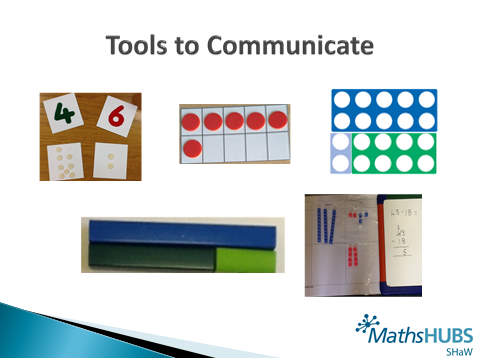SEND and Maths - Developing Working Partnerships
Friday 21 January, Friday 11 February, Tuesday 29 March, Friday 10 June
Workshop 1: Friday 21st January 2022 Online - 0930-1230
Workshop 2: Friday 11th Feburary 2022 - Wolverhampton University Science Park - Marston Room 0930-1530
Workshop 3: Tuesday 29th March 2022 - Online 0930-1230
Workshop 4: Friday 10th June 2022 - Wolverhampton University Science Park -Marston Room 0930-1530
Special schools (primary and secondary) and mainstream schools (primary) will work collaboratively to develop understanding of barriers to learning, which impact on progress in mathematics. Through case study and workshops, participants will explore possible approaches to remove barriers empowering them to address the needs of specific pupils within the classroom.
Who will be leading the group?
Louise Langford
Louise had led SEND and Maths Work Groups over the past two years. Evaluation feedback has been incredibly positive for all four Work Groups.
Louise is an accredited NCETM PD Lead and experienced Mathematics subject leader, with an MA in Education (Early Mathematics Intervention). She works as an Associate Lecturer for Worcester University and as a skilled maths intervention teacher. Louise has specialist knowledge of the pedagogy associated with working with children experiencing difficulties in maths, holds BDA Approved Teacher Status (Dyscalculia) and is a qualified assessor for Mathematical Learning Difficulties and Dyscalculia.
Who is it for?
Teachers and either the SENDCO or Maths Lead from special primary or secondary schools and mainstream primary schools, looking to work collaboratively to share effective pedagogy.
What are the intended outcomes?
Pupil outcomes
- Develop pre-experience, spatial reasoning and a deep sense of number.
- Think mathematically, make connections and explain reasoning using appropriate language or tools to communicate
- Demonstrate an improved mathematical mindset leading to an improvement in independence, confidence, engagement and achievement
School/department policy/approaches
- Teachers will share learning with colleagues to support discussion on current policies and approaches to enable ‘all to achieve’ in whole class maths lessons
- Create a consistency of approach across classes for SEND pupils based on Teaching for Mastery principles
- This work group will bring together a community of practitioners working with pupils with SEND and provide outputs to support any teachers working with pupils with specific needs.
Practice development
- Greater understanding of barriers to learning and how these affect particular pupils with SEND
- Will be able to address the needs of specific pupils not making expected progress within the classroom to reduce or remove the gap between them and their peers.
- Teachers will be better prepared to support pupils with similar, or indeed different, needs in the future as well as enabling their colleagues to follow a similar pathway.
What will it involve?
2 x full day in person workshops, 2 x half day online workshops, with an intersessional learning school-based case study. The full day workshops - 21 January and 10 June 0915 to 1515. The half day workshops - 11 February and 29 March 0915-1215.
Workshop 1
A common understanding of requirements related to teaching mathematics to pupils with SEND will be established, incorporating the SEND Code of Practice, National curriculum and Teaching for Mastery. There will be a focus on key barriers to learning such as memory and processing, language and communication as well as mindset. Case study will be explored ready for the intersessional learning task. Pedagogy around pre-experience, spatial reasoning and a deep sense of number will be introduced.
Workshop 2
This will start with professional learning through collaborative reflection of the school based case study task. Characteristics of particular SEND will be explored such as Mathematical Learning Difficulties and Dyscalculia, dependent on the needs of the group. We will continue to develop specialist pedagogy around securing a deep sense of number. Specific barriers to learning will be explored in more depth, again dependent on the needs of the group.
Workshop 3
This will start with professional learning through collaborative reflection of the school based case study task. Characteristics of particular SEND will be explored such as ASD, ADHD or Dyslexia, dependent on the needs of the group. We will continue to develop specialist pedagogy around securing a deep sense of number. Specific barriers to learning will be explored in more depth, again dependent on the needs of the group.
Workshop 4
Professional learning from the case studies will be presented, shared and ideas reflected on, developed and collated to produce a shared resource. There will be a focus session on further developing problem solving and reasoning to support a deep sense of number, specifically for pupils with SEND. Participants will plan activities for wider impact back in school and development of their practice into the next academic year.
What is the cost?
Free
Book
